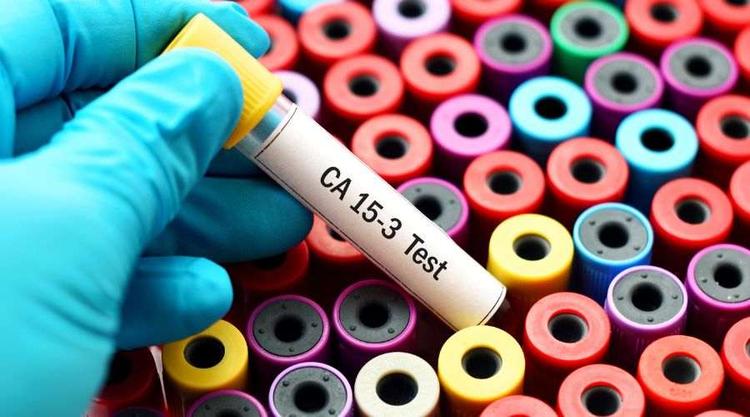The Importance of Pap Smears: Screening for Early Detection

Medically Reviewed By
Dr Sohini Sengupta
Written By Meenakshi
on Feb 3, 2024
Last Edit Made By Meenakshi
on Mar 17, 2024

Cervical Cancer. Being the second most common cancer in women in India and the fourth most common cancer globally, the mere mention of Cervical Cancer can send a shiver down your spine. It is not just another cancer or a medical term but a hurtful reality faced by thousands of women each year. It’s a dangerous disease that can silently be a part of your life and disrupt it. While it can be life-threatening, it’s highly preventable. Therefore, you need to keep tabs on even the slightest changes in your cervix or cervical health, as catching the abnormalities early makes it easier to treat and manage them. That’s where PAP Smears Screenings come in.
PAP Smear? Now, what’s this? If you don’t know or haven’t heard about it, it’s time to learn, as it can be a life-savior for you or your loved ones. Please scroll down to find what PAP Smear is, when you need it, and why it is so important. So, let’s get started.
What is PAP Smear Screening?
Also called a PAP Test, a Pap Smear is a simple screening used to check for changes in the cells of the cervix. It is the most crucial screening that looks for abnormalities in the cervix, allowing early detection, intervention, and prevention of Cervical Cancer.
What symptoms may prompt the need for a PAP Smear Test?
Cervical Cancer often remains asymptomatic in its early stages. However, as it progresses or reaches an advanced stage, it may present the following symptoms:
- Abnormal Bleeding: Unexpected bleeding between periods, after intercourse, or post-menopause could indicate the need for a PAP Smear Test.
- Unusual Discharge: Persistent discharge, especially if it’s foul-smelling or accompanied by pain or discomfort, should be diagnosed to confirm the cause.
- Pelvic Pain or Discomfort: Sudden pain in the pelvis accompanied by discomfort may also need to be checked to identify the cause.
Remember, not every individual has the same symptoms. Sometimes, cervical abnormalities don’t show any symptoms, which is why regular screenings come into use. Therefore, getting tested, as suggested by your healthcare provider, is essential to confirm or rule out the risk.
Also read: If you want to learn more about Cervical Cancer: Risks, Prevention, and Treatment, read it. https://redcliffelabs.com/myhealth/cancer/understanding-cervical-cancer-risks-prevention-and-treatment/
Now you must be wondering, you are healthy and have no symptoms or risk factors linked with Cervical Cancer; the test is probably not for you. This is where you need to correct. How? Keep reading to get the answer.
Reasons You May Need A PAP Smear Screening:
- Routine Checkup: Women, regardless of their sexual activity, should start screening at age 21. However, the frequency and timing of PAP Smears may vary depending on individual factors, like age, symptoms, risk factors, medical history, and more.
- Family History: Women with a family history of Cervical Cancer are more at risk and may prompt the need for a routine cervical cancer screening.
- Previous Abnormal Results: If you’ve had abnormal results in the past, you may be asked for frequent screenings.
- HPV Infections: Since HPV infection is one of the major causes of cervical Cancer, you may be asked to consider getting tested to confirm or rule out the risk.
It is advisable to discuss your situation and odds with a healthcare provider to determine the frequency of the test results.
Still in doubt, why is it so important? How can this one test make a difference? Scroll down to get your answers.
Why PAP Smears Are So Important?
- Help With Early Detection Of Cervical Cancer: The PAP Test helps identify the precancerous or abnormal cells in the cervix long before they develop into Cancer. Detecting these changes early enables you to obtain the right treatment before things turn ugly.
- Preventive Care: Regular PAP Screening empowers individuals to take control of their health by identifying potential issues before they turn severe.
- Save Lives: Early detection through PAP Smear allows healthcare providers to intervene early to prevent the progression of abnormal cells into cervical Cancer.
- Reduced Mortality: Regular screening may help you diagnose the problem early and allow you to get treated successfully at a manageable stage to reduce the mortality rate.
- Improve Success Rate: Regular screening contributes to better management, ensuring a higher success or recovery rate.
- Ensure Cost-Saving: Routine screening is more cost-effective than treating advanced-stage cancers, reducing healthcare costs or patient burden.
Remember, while the frequency may vary, the test is critical for one and all women for better preventive care.
Cervical Cancer, if left unaddressed, can have serious consequences. Therefore, PAP Smear is pivotal in women’s healthcare, enabling early detection of cervical Cancer & other abnormalities. By prioritizing routine PAP Screenings, women can take charge of their health. Schedule a regular PAP Smear Test to stay ahead of health complications and empower yourself with the right knowledge.
Schedule Your PAP Test With Redcliffe Labs Cervical Health matters! So, don’t take it for granted. If you experience any abnormalities, have risk factors, or are at the age you should start testing, consider getting it done. The sooner, the better. And when it comes to the PAP Test, Redcliffe Labs is the one you can count on. Being Healthy India Ki Trusted Lab, we offer a range of tests at highly reasonable rates. You can get tested comfortably from home with us. We have a team of phlebotomists to collect the sample from your home. Besides ensuring precise testing and accurate reports, we provide free doctor consultations to discuss the reports. So, delay no more and book the PAP Test with us now.



